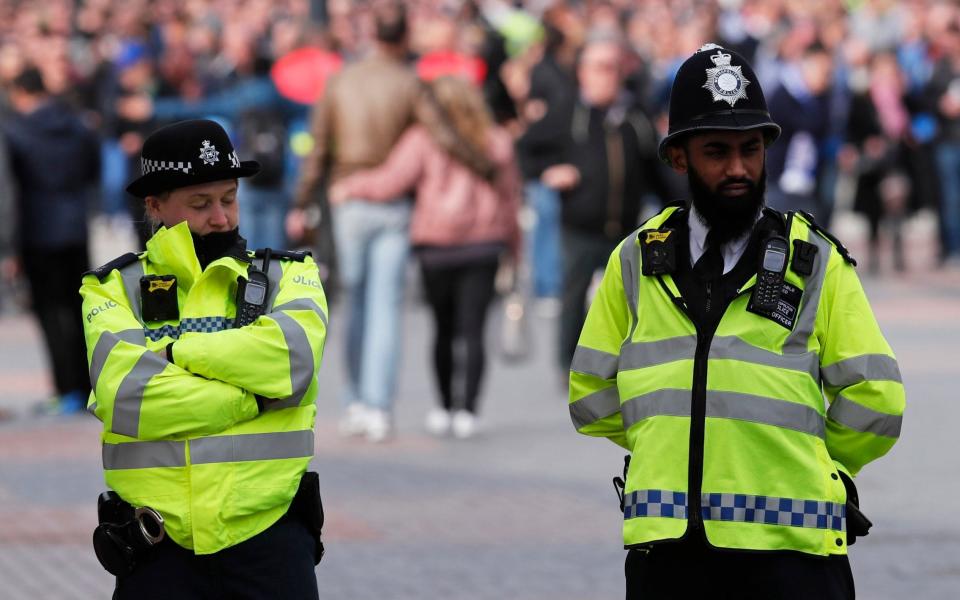Civilians could become chief constables under government plans amid concerns of a shortage of candidates

Civilians could compete with senior police for chief constable jobs under new Government plans.
It is understood that people from outside policing could take the top roles in England and Wales following Home Office proposals.
The Home Office said choosing police leaders is of the "highest importance", and the College of Policing said individuals would be required to undergo "appropriate training".
A consultation on the plans is believed to have begun.
Giselle Lockett, lead for professional development at the College of Policing, said: "The appointment to become a chief constable requires a candidate to meet some of the most stringent requirements in policing.
"Currently, to become a chief constable, you must pass the Police National Assessment Centre and complete a four-month Strategic Command Course.

"The requirements reflect the seriousness and importance of the role and are set to identify officers capable of being an effective chief officer.
"The proposed legislation would allow police and crime commissioners to appoint a chief constable from outside policing who would then be required to undergo appropriate training specified by the college.
"We will now consider these proposals alongside our current work to provide advice on appointments including those from chief officer roles in the fire service."
A Home Office spokesman said: "Choosing our police leaders is of the highest importance to the future of the service and schemes such as Direct Entry bring people from a wide range of backgrounds into forces."
The Direct Entry scheme allows candidates from outside policing to join the service at certain ranks, and is seen to offer the opportunity to widen the talent pool and bring in people from a diverse range of backgrounds.
A recent survey published by the College of Policing identified a lack of available chief officer candidates, and a lack of diversity and ability to share ideas, thoughts and experiences.
You must recognise that talent does not only come from within police ranks. It can be found elsewhere too
Amber Rudd
The college has already announced it plans to consult on the experience and qualifications required for chief officers.
In November, Home Secretary Amber Rudd called on police chiefs to look outside the service when recruiting new personnel.
She said talent can be found in the public and private sectors, as well as from within forces.
Delivering her first major speech on policing since her appointment, she highlighted the importance of "workforce reform" as emergency services face evolving threats.
Addressing police and crime commissioners and chief constables at a conference in London, she said: "You must recognise that talent does not only come from within police ranks.
"It can be found elsewhere too, in both the public and the private sector."
Ms Rudd cited the Direct Entry scheme, and said: "These men and women bring expertise from the worlds of finance, the civil service, the military and business. Expertise that can make a difference."
The National Police Chiefs' Council lead for workforce, Chief Constable Giles York, said: "We have fully supported the College of Policing research into appointments of the most senior roles in policing. "We have also shared some concerns when there is only one applicant for a role, and the limited progress in getting greater diversity into the highest levels of police command.
"The service has shown openness in implementing the Direct Entry superintendent scheme along with other initiatives.
"Appointing people with no policing or necessarily public service experience may well carry more risk which will need to be considered, particularly by police and crime commissioners when appointing chief constables."

 Yahoo News
Yahoo News 